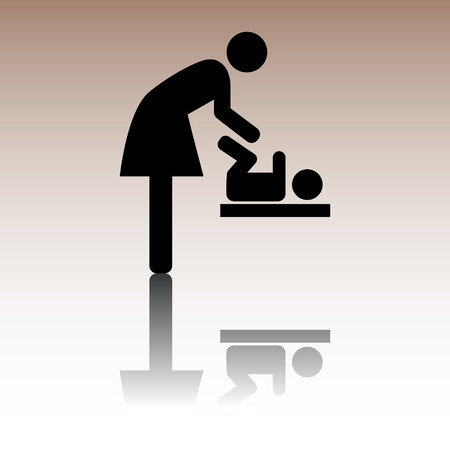Understanding Developmental Milestones
Developmental milestones are a series of functional skills or age-specific tasks that most children can do at a certain age range. These milestones serve as important markers in a child’s journey of growth, encompassing areas such as motor skills, language, social interaction, and cognitive abilities. In the UK, parents and professionals alike pay close attention to these milestones to ensure that children are progressing as expected. Typically, milestones are grouped into domains like physical development (such as crawling or walking), communication (babbling or first words), and social-emotional responses (like smiling or showing affection). Each child develops at their own pace, but there are commonly accepted age ranges for when most children achieve these skills—for example, many babies sit unsupported by around six months and may take their first steps between twelve and fifteen months. Recognising these benchmarks is especially significant in the context of children’s rehabilitation. Early identification of delays allows families and practitioners to provide tailored support, enhancing the child’s potential for independence and participation in daily life. By understanding developmental milestones, we can better appreciate each child’s unique path while ensuring they receive the guidance and encouragement needed to thrive.
2. The Role of Milestones in Early Identification
In the context of children’s rehabilitation, developmental milestones serve as crucial reference points for parents, carers, and professionals alike. By systematically tracking these milestones—such as first words, walking unaided, or social smiling—families and practitioners can monitor a childs progress and notice if there are any deviations from typical patterns of development. Early identification of developmental delays or additional needs is particularly significant in the UK, where accessing timely support and intervention can dramatically improve long-term outcomes for children.
Why Early Identification Matters
Spotting concerns early allows families to engage with local services, such as health visitors, speech and language therapists, occupational therapists, and paediatricians. The National Health Service (NHS) and local authorities often use milestone checklists during routine health checks—like the Healthy Child Programme reviews at 9-12 months and 2-2½ years—to ensure children receive appropriate assessments. If a delay or concern is identified, referrals to specialist services can be made quickly, reducing waiting times and supporting better developmental trajectories.
Common Developmental Milestones Monitored in the UK
| Age Range | Milestone Category | Examples of Key Milestones |
|---|---|---|
| 0-6 months | Physical & Social | Lifting head, cooing, smiling at familiar faces |
| 6-12 months | Cognitive & Communication | Babbling, sitting unaided, responding to name |
| 12-24 months | Mobility & Language | Walking with help/unaided, saying simple words |
| 2-3 years | Social & Fine Motor | Playing alongside peers, building simple towers, following instructions |
| 3-5 years | Cognitive & Social Skills | Speaking in sentences, imaginative play, sharing with others |
The Impact on Accessing Support in the UK Context
Early recognition through milestone tracking not only reassures families but also enables prompt engagement with the UK’s structured support systems. When delays are identified early on, families can access interventions such as portage services, early years SENCO (Special Educational Needs Coordinator) support in nurseries or preschools, and tailored healthcare plans. This proactive approach helps ensure that every child receives the best possible start in life while also alleviating stress for families by providing clear pathways to help and advice within their community.

3. Tailoring Rehabilitation to Individual Needs
Recognising that every child embarks on a unique developmental journey is central to creating effective rehabilitation programmes. No two children develop in precisely the same way or at the same pace, and this understanding lies at the heart of paediatric care within the UK. British health services, such as the NHS and local authority provisions, prioritise a holistic assessment of each child’s strengths, needs, and circumstances before designing any therapeutic plan. This approach ensures interventions are not only evidence-based but also genuinely person-centred.
Personalised rehabilitation begins with detailed observations and standardised assessments, often undertaken by multidisciplinary teams comprising physiotherapists, occupational therapists, speech and language therapists, and paediatricians. These professionals work closely with families to gather insights into a child’s daily life, cultural background, and preferences—recognising that what is meaningful for one family may be different for another.
By mapping a child’s current abilities against typical developmental milestones, practitioners can identify both areas of achievement and those requiring support. This process allows them to celebrate progress while also setting realistic, incremental goals that reflect the child’s individuality. In British practice, there is an emphasis on partnership: parents and carers are valued as experts in their own right, contributing vital knowledge about their child’s personality and needs.
Moreover, British health services often employ the “key worker” model to ensure continuity and coordination throughout a child’s rehabilitation journey. This means families have a consistent point of contact who understands their story and can advocate for their best interests across different services. Such models foster trust and empower families to take an active role in planning and reviewing care.
Ultimately, tailoring rehabilitation in this way respects the dignity of each child. It acknowledges that developmental milestones are not simply boxes to be ticked but guideposts for supporting growth in a compassionate and inclusive manner. This personalised approach within the UK helps children reach their fullest potential while ensuring that families feel heard, respected, and supported throughout every step of their journey.
4. Family and Professional Collaboration
Within the realm of childrens rehabilitation, particularly in the UK, fostering a harmonious partnership between families, therapists, and educators is essential to supporting each childs journey through their developmental milestones. Open communication forms the backbone of this collaborative approach, creating an environment where concerns, observations, and progress can be shared transparently. By embracing a supportive network, children benefit from consistent strategies at home, school, and during therapy sessions.
The British Support Network
The British system places great emphasis on teamwork, recognising that parents or carers are experts in their own childs needs while professionals bring specialised knowledge. This mutual respect builds trust and empowers families to actively participate in decision-making processes related to their child’s care plan. The following table outlines key roles within the support network:
| Role | Contribution | Typical Communication Method |
|---|---|---|
| Family Members/Carers | Provide daily insights into child’s behaviour and progress; advocate for child’s needs | Parent-teacher meetings, written diaries, phone calls |
| Therapists (e.g. Physiotherapists, Occupational Therapists) | Offer expert assessments; design and adjust intervention plans | Regular reports, face-to-face consultations, review meetings |
| Educators (Teachers, SENCOs) | Monitor learning environments; adapt classroom strategies | Email updates, school reports, multi-agency meetings |
| NHS/Social Services Professionals | Coordinate broader health and social care support as needed | Care conferences, integrated care records |
Cultivating Effective Communication Channels
In practice, establishing regular check-ins—such as multi-disciplinary team (MDT) meetings—is a staple in the British context. These sessions ensure that everyone involved is aware of current goals and any adjustments required as the child develops new skills or faces fresh challenges. Families are encouraged to share their observations without hesitation, knowing their voice is valued.
A Gentle Reminder: Everyone Matters
The journey through childhood development is not one that families walk alone. By nurturing open dialogue and valuing each perspective within the support network, we create a compassionate framework that truly champions every child’s potential in their rehabilitation process.
5. Monitoring Progress and Celebrating Achievements
Gently monitoring a child’s progress is an essential part of the rehabilitation journey, and it’s important to approach this with both attentiveness and kindness. In the UK, various tools and frameworks are employed to track developmental milestones, such as the Ages & Stages Questionnaires (ASQ) and the Early Years Foundation Stage (EYFS) profile. These tools allow parents, carers, and professionals to work together, ensuring that every aspect of a child’s development—physical, social, emotional, and cognitive—is supported with care.
Suggestions for Gentle Monitoring
Rather than focusing solely on what a child cannot yet do, it is vital to observe their unique strengths and emerging abilities. Gentle monitoring means regularly noting small changes, maintaining open communication with healthcare professionals, and creating a calm environment where children feel safe to try new things. Families are encouraged to keep a simple diary or scrapbook of milestones reached—however small—as these can provide valuable insights and encouragement over time.
Tools Used in the UK
The UK offers several resources to assist families in tracking development. Health visitors often use the Personal Child Health Record (PCHR), commonly known as the “Red Book,” which allows parents to record milestones and health visits from birth onwards. Additionally, multidisciplinary teams may use standardised assessments like the Schedule of Growing Skills (SGS) or the Griffiths Scales. These tools help create a holistic view of each child’s progress while recognising that every child develops at their own pace.
The Value of Celebrating Every Achievement
Celebrating each achievement—no matter how modest—helps nurture confidence and wellbeing in children undergoing rehabilitation. Acknowledging efforts with gentle praise fosters resilience and self-esteem, creating an atmosphere where children feel valued for who they are as much as for what they achieve. Whether it’s mastering a new word, balancing for a few seconds longer, or making eye contact during playtime, every step forward is meaningful. By sharing these moments with family members and professionals, you help your child build a sense of pride in their journey—a foundation that will support their continued growth and happiness.
6. Challenges and Considerations in UK Settings
When supporting children’s developmental milestones within the context of rehabilitation in the UK, there are a number of unique challenges that practitioners, families, and services regularly encounter. Understanding these hurdles is essential to providing compassionate, effective care tailored to each child’s needs.
Diversity in Backgrounds and Needs
The UK is home to a rich tapestry of cultures, languages, and family structures. This diversity means that children present with a wide variety of experiences, expectations, and support requirements. Practitioners must be sensitive to cultural differences that may affect how developmental milestones are perceived and prioritised. Additionally, language barriers or differing health beliefs can sometimes complicate assessment and intervention, requiring thoughtful communication and tailored approaches.
Resource Availability Across Regions
Access to rehabilitation resources for children can vary significantly between different areas of the UK. Urban centres often have more specialised services available, while rural or remote communities might face longer waiting times or limited access to multidisciplinary teams. These discrepancies can influence the timing and quality of interventions that children receive, making it important for professionals to advocate for equitable distribution of services and creative solutions such as telehealth or community partnerships.
Equality of Access
Ensuring all children have equal access to rehabilitation is an ongoing challenge. Factors such as socioeconomic status, disability, ethnicity, and geographical location can create barriers to accessing timely support. The NHS and other organisations strive for inclusivity, but families may still experience difficulties navigating complex systems or receiving adequate information about available support. Addressing these inequalities requires both systemic change and individual advocacy from those involved in children’s care.
Working Together for Holistic Support
Despite these challenges, collaboration between health professionals, educators, social workers, and families remains at the heart of successful rehabilitation in the UK. By recognising each child’s unique context and working together to overcome obstacles—be it through flexible service delivery, community engagement, or culturally informed practice—we can help every child reach their developmental milestones with dignity and hope.

